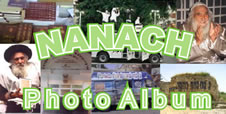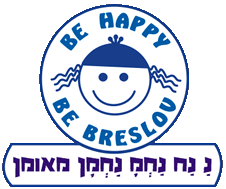Creating Torah Through Speech
Likutei Halachos on Parshas Matos
Translated by Dov Grant
Bemidbar 30:3 "When a man makes a vow"
The parshah of Mattos deals with vows. The mitzvah of vows shows us the great power of speech: Immediately after a person merely verbally expresses something, he must fulfill it.
Actually, the entire subject of vows is a truly lofty pli’ah/wonder, as reflected in the Torah’s language (6:2); “When a man or woman yafli/pronounce a vow…” (Yafli is etymologically related to pli’ah). Vows reflect the plios chochmah/”wonders of wisdom”, as explained by Rebbe Nachman in Likutei Moharan 57. For this area shows us the greatness of man and his free choice: The fact that he has the capability to create for himself new mitzvos with his speech – mitzvos that he had not been commanded to do.
For example, a person can forbid to himself something that is inherently permitted. Merely vocalizing his desire serves to prohibit him under Torah law. Really amazing!
The item is not intrinsically forbidden and yet once he has pronounced his words to proscribe it – even without mentioning one of the holy names of Hashem – full Torah law immediately forbids it to him.
With this we see the great power of man, the possessor of Free Will. At foundation, his free will lies in his mouth and heart: When his heart longs to be sanctified through severance from something physical, and he expresses the passion verbally by mouth, the matter actually transmutes into Torah, since the item has now become forbidden to him by law of the Torah. This mechanism is effected through the fact that the Jewish soul is “a portion of Hashem above” (chelek elokah mi’ma’al), who Himself bears relation to the Torah – for the Holy One, Torah and the Jewish people are all one (Zohar Acharei Mos 73a). Therefore man, with mere utterance, has the power to make a vow and create mitzvos for himself as he desires.
The basis of our making a vow is the desire to separate ourselves from physical desires, as it states (Avos 3): “Vows are a fence for separation”. This sort of vow is truly a mitzvah, as Chazal tell us (Nedarim 8): “One is allowed to make a vow in order to goad his soul”.
Now, the main expression of a vow is with the mouth. This shows how great the power of speech actually is: It has the ability to spur us to separate even from normally permitted things. This takes many forms. Some people undertake to fast for a day. Some vow to abstain from eating a certain animal. Others promise to give tzedakah more than their ability to do so. In any event, an elementary consideration of the matter should astound us. For if we possess the internal resources to overcome our natural tendencies, what do we need to take a vow for? And if we do not have the ability – then taking a vow will not help!
We can ascertain from this the remarkable power lying at the very root of every vow. Articulating a vow elevates us to an aspect of plios chochmah that lies at the root of free will. It is from there that we derive the strength to overcome our earthly desires when we use our power of speech. (Of course, a vow does not negate our free will. The fact is that the power of free will is so mighty that it can still turn us astray. Hence, the Torah emphatically warns us to fulfill our vows and, indeed, everything that we articulate).
And so we find in the Torah the great efficacy of vow taking in the battle against the yetzer hara/bad nature. In the book of Ruth (3) Boaz tells Ruth: “Hashem lives! Lie down until the morning”. Chazal tell us (Midrash Rabbah 5) that this expression indicates that Boaz took an oath, in order to overcome the yetzer hara. The implication is that Boaz thought that his yetzer would overwhelm him if he did not make a vow (as Chazal indicate in Nedarim 8). Through the vow, Boaz was able to withstand the test and quash his yetzer hara.
We similarly find a number of proper and righteous people using this tool in their spiritual work. Rebbe Nachman told me that he was greatly accustomed to take vows to attain greater levels of holiness and separation from earthly desires.
Shivchay Haran 15/Orach Chaim Hilchos Birchas HaShachar 5:90
http://likuteihalachos.blogspot.com
ravdgrant@gmail.com |








|






